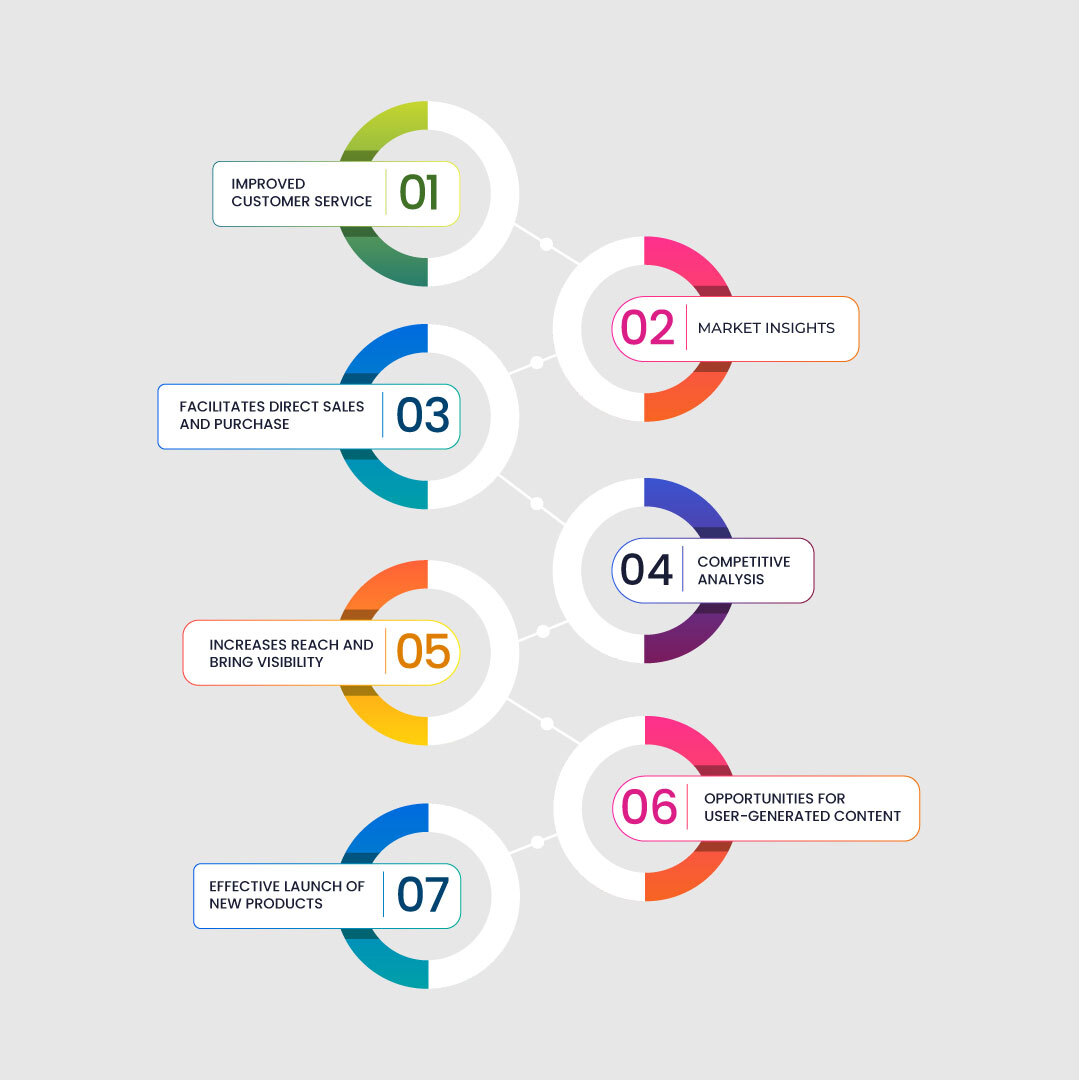Social media works as interactive sites that facilitate creating, sharing and aggregating ideas, interests, and other forms of expression. It is a global bridge that connects people from diverse cultural backgrounds worldwide.
With billions of users, social media platforms have emerged as practical tools for businesses looking to market and sell their products online. Platforms like Facebook, Twitter, and Instagram give customers direct and immediate access to business proposals and offerings. These virtual networks allow people to share ideas and information, using text and visuals, to target communities and play a strong role in business success.
In this blog, we will delve into the profound impact of social media services on ecommerce. We will explore how companies can effectively utilize this technology to boost sales, enhance customer engagement, and extend their market reach.
Importance of Social Media Service in Ecommerce
Every business needs to understand its target market better, and social media plays an important role. Here is a list of the top 7 ways how social media impacts ecommerce businesses:

1. Improved Customer Service
Social media platforms allow customers to engage with businesses in real-time. Customers can directly text or call business sales representatives on social media sites with their queries, enabling them to provide prompt and personalized support. Businesses address customer issues quickly and resolve problems efficiently. It offers solutions in a transparent and public manner, building customer trust and satisfaction.
2. Market Insights
Real-time market insights are one of the most important ways to succeed in business. Social media platforms provide businesses with data that can be used to analyze consumer behaviour, preferences, and trends. By monitoring social media conversations, businesses identify emerging trends in the market and improvise or modify their services accordingly. Responding quickly to changes in the market helps them survive and boost business revenue. Businesses that make data-driven decisions can improve their overall performance.
3. Facilitates Direct Sales and Purchase
Social media sites have revolutionized the way businesses operate. Now, businesses don't need brick-and-mortar showrooms to showcase their products. Facebook, Instagram, and Twitter have integrated e-commerce features that allow companies to create online stores. Customers can easily check their products on social media platforms and make direct purchases. It has opened up new revenue streams for businesses and made it easier for customers to shop while sitting comfortably in their homes.
4. Competitive Analysis
Improved competitive analysis and benchmarking are the key benefits of social media for businesses. Businesses have a wealth of information about their competitors, including their marketing strategies, customer engagement tactics, and product offerings. They learn from their successes and failures, which also helps them build a plan according to market needs. Social media platforms also allow businesses to create targeted advertisements that can be customized to target specific demographics. Businesses hitting the right audience with similar interests make them more effective at driving sales.
5. Increases reach and bring visibility:
Social media platforms have become a common destination for almost every customer to explore different products and services. Hence, they help businesses reach variable target audiences and raise brand awareness. Enterprises use these platforms to engage with their users, build trust, and even use customer feedback to improve their products and services.
6. Opportunities for User-Generated Content
Social media platforms are ideal for building user-generated content and advocacy. Users easily share their experiences and opinions about your business's products and services with a broad audience. It builds trust among new customers and positively impacts a business's reputation, customer engagement, and bottom line.
7. Effective Launch of New Products
Social media platforms offer businesses a powerful tool to reach and engage with their target audience. Companies can use social media platforms to create buzz and generate excitement around their new offerings. Social media sites share sneak peeks about new products and build anticipation among their followers. Businesses also utilize social media to gather feedback and insights from their audience to refine and improve their offerings before the official launch.
If you are looking for an ecommerce web design agency, Innoraft offers the services. Innoraft is an ecommerce website design company that is an expert in crafting the perfect app or website, propelling your business to greater heights. We believe in driving success, with customer satisfaction as our ultimate milestone. Our 24*7 tech support services leave you never unattended.
Conclusion
By leveraging the power of social media in ecommerce, businesses can gain valuable customer insights, extend their market reach, and foster stronger customer relationships. With the right ecommerce development services and a comprehensive social media strategy, these platforms can facilitate meaningful engagement between clients and ecommerce businesses, transcending the role of mere promotional tools for special offers and new product launches.
